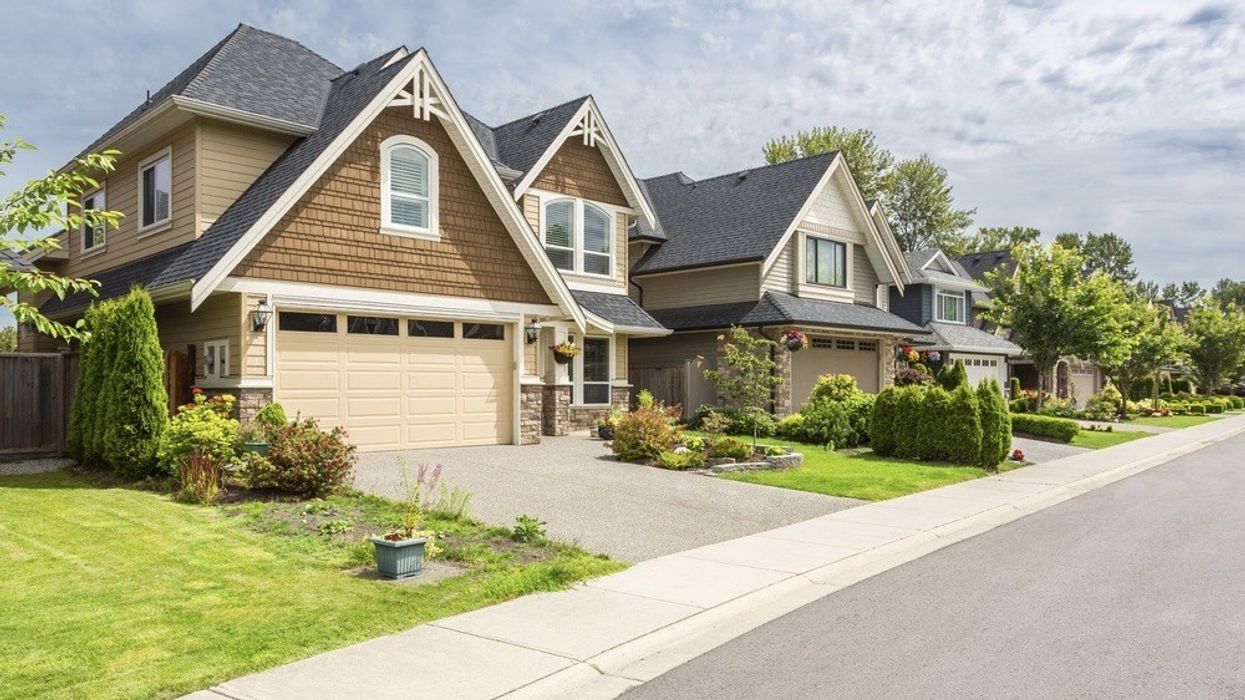Canadian real estate brokerage Royal LePage expects that home prices will rise over 13% in 2021, building on the already unexpectedly strong growth this year that's been driven by a shortage of listings and record low-interest rates.
On Tuesday, the brokerage released its House Price Survey and Market Forecast -- which analyzes 64 of the nation’s largest real estate markets -- revealing that the aggregate price of a home in Canada is set to rise 13.5% year-over-year to $805,000 in the fourth quarter of 2021. The previous forecast, released in December 2020, saw home prices rise 5.5% to $746,100 in 2021, which has been revised upward to reflect the current state of the market.
Royal LePage says the home price growth will be driven by the return to pre-pandemic levels of immigration, the continued vaccine rollout, and low interest rates.
This comes as the aggregate price -- calculated using a weighted average of the median values of all housing types collected -- of a home in Canada increased 14.1% year-over-year to $749,165 in the first quarter of 2021, as strong demand continues to outpace supply in virtually every market across the country.
READ: More Than 1/3 of Canadians Under 40 Give Up Dream of Owning a Home
More than two-thirds of the regions surveyed (67%) saw year-over-year double-digit aggregate price gains, driven largely by the single-family property segment, while 77% of regions surveyed reported median price appreciation of standard two-storey homes of 10% or more, according to the Royal LePage.
When broken out by housing type, the median price of a standard two-storey home rose 15.9% year-over-year to $894,140, while the median price of a bungalow increased 14.1% to $628,341, and the median price of a condominium increased 2% year-over-year to $509,364.
“2020 was a year like no other in Canadian real estate, with its unprecedented demand for homes, and month after month of record-setting sales and price appreciation,” said Phil Soper, president and CEO of Royal LePage. “The usual winter slowdown was non-existent, and that momentum was carried forward through the first quarter of 2021.
“The winter of ‘20/’21 was one of the most imbalanced real estate markets in our country’s history, with so many people wishing to improve their living conditions and a pandemic-driven shortage of homes for sale,” said Soper. “We expect this extreme seller’s market to moderate as the year progresses. Some buyers will step away from the market in the face of sharply higher prices, and the supply of new listings should improve as people feel more confident that the health crisis is under control."
On a local level, the aggregate price of a home in the Greater Toronto Area (GTA) increased 13.1% year-over-year to $989,961 in the first quarter of 2021. Broken out by housing type, the median price of a two-storey home increased 13.6% to $1,164,894, while the median price of a bungalow increased 15.3% to $982,120, and the median price of a condominium increased 1.2% to $598,819 during the same period.
During this same time, the aggregate price of a home in Toronto increased 7.4% year-over-year to $984,709, while the median price of a two-storey home increased 11.8% to $1,550,577, the median price of a bungalow increased 14.7% to $1,061,534, and the median price of a condominium dipped slightly by 0.6% to $637,551.
“There is a persistent momentum in the market that continues to put upward pressure on prices,” said Debra Harris, senior vice president, Royal LePage Real Estate Services Ltd. “Without an extended surge of inventory, that momentum is unlikely to relent. Homeowners who want to move are reluctant to list their homes before they buy because they are concerned there won’t be anything available, and the cycle continues.”
Harris added that sellers would feel more confident about securing their next home if the number of days on market was longer.
“Typically, we measure absorption - how long it would take to run out of inventory - in months. At the moment, we have an absorption rate in the GTA of about three and a half weeks. The number of new listings added each month is lower than the pace of sales, and that gap continues to widen,” said Harris.
The anticipated return of immigrants and a more typical volume of students -- both local and international -- in the fall is expected to boost condo sales in Toronto and the surrounding areas, added Harris. She expects Toronto will begin to see an indication of that demand by the middle of the second quarter of 2021.
As for what's to come for Canada's largest city, Royal LePage is forecasting that the aggregate price of a home in the GTA will increase 11% to $1,035,000 in the fourth quarter of 2021, compared to the same quarter last year. The previous forecast, released in December 2020, has been revised upward to reflect the current state of the market.
While prices in Toronto are poised to get undoubtedly more expensive this year, it's not quite as bad as in Vancouver, where the aggregate price of a home is forecast to increase 13% to $1,276,000 in the fourth quarter of 2021, to become the most expensive city to buy a home in the country.





















